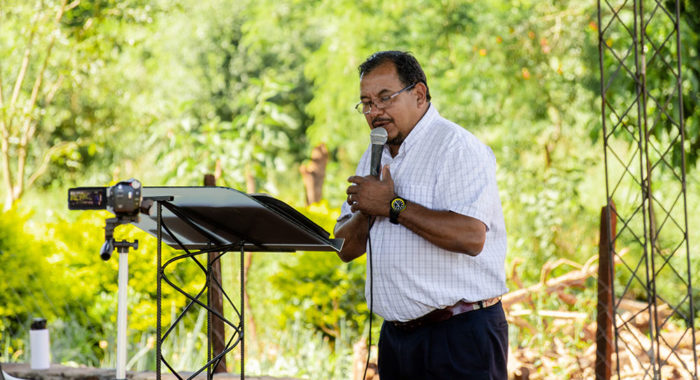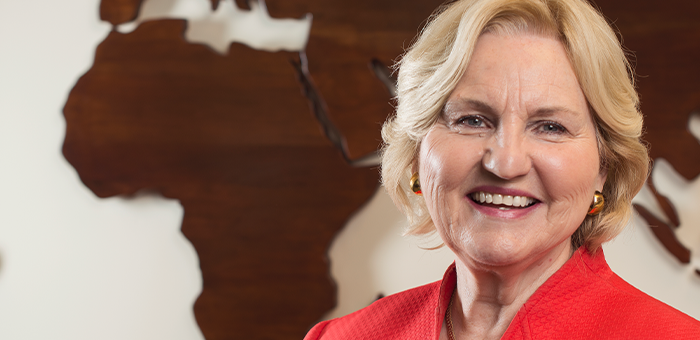While Christian TV and radio shows and secular news coverage may focus on megachurches and well-known pastors in America, the vast majority of pastors quietly and faithfully serve their congregations while living with personal and church financial challenges.
Through the National Association of Evangelicals’ research of 4,249 evangelical senior pastors,
we discovered:
- 82 percent of pastors identified their community as a rural area or small town/city.
- Nearly 80 percent of pastors serve in congregations with fewer than 200 people, and 55 percent have fewer than 100 people in their church.
- The median annual budget of churches surveyed was $125,000.
- 50 percent of pastors receive compensation under $50,000 per year, even though many of them have advanced degrees.
- Only 5 percent said their denomination has “many resources” to help them with their personal finances, and only 9 percent said the denomination has “many resources” to help them with church finances.
- Only 14 percent of pastors said they received financial training from their seminary.
At recent pastors conferences where I have spoken, only 15 people out of 1,000 raised their hands when asked if they were paid enough by their church to take care of their family’s financial needs without any extra income.
The bottom line is that most rural and small town pastors and spouses have been “suffering in silence” and feel they have had nowhere and no one to turn to for help. And whatever financial and stewardship training might be available to help pastors and church leaders requires travel expenses and time that most churches can’t afford.
One pastor in Colorado who had been at a church for 15 years shared that his congregation of 40 people stopped paying him three years ago, because they didn’t have enough funds. He said the church didn’t even have the money to pay for the building expenses. He didn’t want to see the church die (“I don’t believe in church euthanasia!”). He turned to the denomination for resources for his own finances and the finances of the church, but they weren’t able to help him.
A pastor in California who had been at his church for 13 years shared that his church had a building fund drive to raise money for a building expansion project. When the pledged funds didn’t come in as promised, the church board cut his salary by 35 percent in order to pay for the loan on the building project. He said he wished there was committee-based training available to help him and his leadership board know how to encourage greater generosity in his church.
In Michigan, an associate pastor became an Uber and Lyft driver to help provide needed funds to pay household living expenses. While giving hundreds of rides to make extra money, this pastor has been able to share his faith and lead people to the Lord.
These stories and an examination of the NAE research shows a major change is needed to improve the financial health of pastors and churches. Thirty percent of pastors have student loan debt averaging $36,039. Sixty-two percent of all pastors do not receive any retirement contribution from their church, even though 60 percent of pastors have been serving at their current church for over six years. Nearly 60 percent of pastors have less than $50,000 in a retirement account. Fifty-nine percent do not receive family health insurance from their church, and 24 percent have unpaid medical debt averaging $7,253.
But help is now on the way. Through generous grants from Lilly Endowment Inc. to the National Association of Evangelicals and a number of our member denominations, several million dollars will be invested in providing financial resources and training to pastors, their spouses and church leadership teams. And, these resources are not just for small town and rural churches but for all churches and pastors, regardless of their size and location.
The NAE’s project, NAE Financial Health, focuses on connecting and resourcing denominations, churches and pastors to improve the financial health of pastors and churches. Through free self-assessment surveys, Best Practices resources and online training courses, pastors and their churches can work together to improve their financial health. Even pastors and churches with larger budgets can improve their financial health by using these resources.
We are currently working with six NAE member denominations to offer customized online training courses on personal finances for pastors and spouses, and on church generosity for pastors and church leaders. However, any pastor or church can utilize the free self-assessment surveys, vast collection of Best Practices resources and online training at NAEfinancialhealth.org.
In addition to personal finances and church generosity, the site also includes resources and training on pastor compensation. Future modules will cover church finances and fundraising projects.
The NAE is also working with six NAE member denominations to provide matching grants to help pastors facing specific financial challenges such as medical needs, student loans, retirement readiness and special needs. In 2018, four more member denominations will be added. In future years, all NAE member denominations will be offered assistance to begin providing their own customized training and resources.
Pastors and spouses should not have to suffer in silence. There is now a place to find the practical help they need to not only survive, but to thrive.
This article originally appeared in Evangelicals magazine.
Brian Kluth became national director of NAE Financial Health in 2016 after serving in the financial and generosity sector of the evangelical community for over 35 years. He was president of the Christian Stewardship Association for five years before becoming senior pastor of First Evangelical Free Church of Colorado Springs in 2000. In 2009, the church commissioned him to become a full-time generosity minister. Kluth holds a bachelor’s degree in communications from Trinity International University and an honorary doctorate of divinity degree from the Evangelical Free Church of India’s Trinity College and Seminary.




 View All Articles
View All Articles 


























